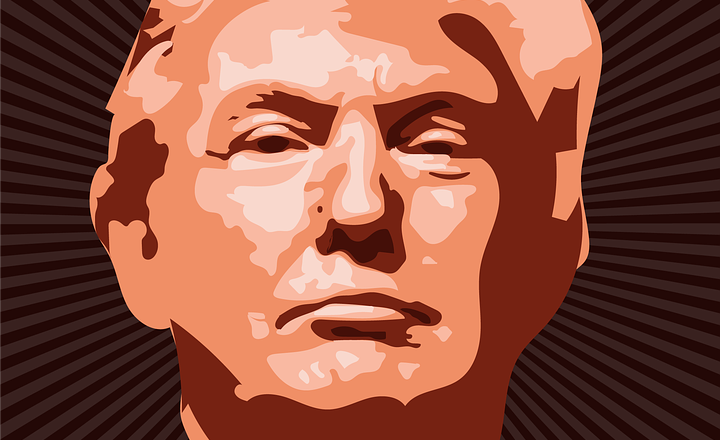By Tamzin Rosenwasser, M.D.
A “single-payer” system for financing medical care accomplishes a few things. It destroys a vital freedom for millions, and it concentrates power in the hands of a few. The theory sounds as though it would simplify things, which may make it attractive at first glance, especially to those who do not practice medicine. Experience guides thought and action better than theory.
I hope Mr. Trump, and all the candidates, will consider the implications of a single-payer system of medical finance very carefully. We already have what might be paradoxically characterized as a multiple single-payer system. Information from the Agency for Healthcare Research and Quality shows that of the medical expenses for those 65 years or older, 63% was paid by Medicare. For the population as a whole, 26% was paid by Medicare; 10% by Medicaid; 40% by private insurance, increasingly dominated by a few behemoths; and 14% out of pocket. Making it a single single payer does nothing to remedy its inherent flaws.
Consider an iron law of human behavior. If something is subsidized, it will be stimulated. Those of us practicing medicine see this in the form of massive overuse of medical services. Every cut and sniffle seems to be run through the huge bureaucracy in charge of paying the bills, and all the bureaucrats are paid salary, benefits, and retirement.
The overuse will drive up costs, as we have seen occur. When the costs escalate, the response of those in charge will be to ration medical care. Since a population of 300 million cannot be treated as individuals by a huge bureaucracy, the effect will always be to arbitrarily deny care. Patients will be treated as interchangeable units, not as human beings.
In Canada, the population of only 36 million labors with waiting lists. In June 2005, George Zeliotis, and his surgeon, Jacques Chaoulli, won a judgment from the Supreme Court in the Province of Quebec, over the illegality of the surgeon doing a hip replacement outside of the government payment system. Mr. Zeliotis was on a waiting list. In Canada, the law said it was illegal to buy private medical services for things “covered” by the public health care system. Chief Justice McLachlin said waiting lists jeopardize Canadians’ Constitutional rights, and that the state monopoly over the provision of medically necessary services was not legally justified.
This is only one example of the way in which the system in Canada, which we are told works fine, does not work for people who actually need care. Dogs have better access to medical care in Canada than human beings do, and even in the U.S. veterinarians are much freer to take care of their patients than are physicians constrained by the multiple single payer, with its price controls, “guidelines,” endless reporting requirements, and other tools of covert rationing.
Mr. Trump certainly stands out in his energy and intellect. I hope he will re-consider the issue of single-payer medical care financing, confer with his fellow candidate, Dr. Ben Carson, and consider whether he would like to have to bribe someone to illegally take care of him when he is sick.
The natural mechanism for allocating resources and for balancing supply and demand is free-market prices. This is also the natural method of value-based payment, reflecting the values of both buyers and sellers.
Mr. Trump surely can imagine what an administrative pricing scheme, like that of the Medicare single payer, would do to real estate. Are our needs for medical care any less personal and individual as our need for housing?
The age in which single payer works would be one in which human nature changes and the laws of economics no longer apply. Too many have been led to believe that medicine is somehow exempt from these forces. Mr. Trump is a realist who should be able to see through this charade.
Of course, medical care and its financing are not one of the enumerated powers of our Constitution. Federal government “help”, that is, interference, in any citizen’s medical care is unConstitutional. Just as Shriners’ hospitals do, if citizens were not burdened with taxes to support a huge parasitic federal bureaucracy, and to pour our wealth down the corrupt rat holes of ungrateful nations who hate us, we would take care of the medical costs of the needy with voluntary charity.
Dr. Tamzin Rosenwasser earned her MD from Washington University in St. Louis after putting herself through medical school. She is board certified in Internal Medicine and also Dermatology, and has practiced Emergency Medicine as well. Dr. Rosenwasser served as President of the Association of American Physicians and Surgeons (AAPS) in 2007 and 2008. Dr Rosenwasser has written numerous articles and opinion editorials, and has been a guest on many media broadcast shows. She is currently writing a book on medical practice. She also serves as the chair of the Research Advisory Committee of the Newfoundland Club of America. As a life-long dog lover and trainer, she realizes that her dogs have better access to medical care and more medical privacy than she has, and her veterinarians are paid more than physicians in the United States for exactly the same types of surgery.




